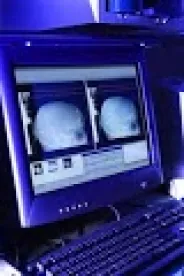Introduction
The European Commission has issued two proposals that would fundamentally amend EU law on medical devices and in vitro diagnostics. The current EU regime has been criticized by stakeholders for not providing sufficient product safety. After the French breast implant scandal in 2010, where tens of thousands of breast implants had to be removed because they were of poor quality and bore risks to women’s health, these voices became louder and finally urged the European Commission to act. The proposals cover medical devices manufactured in or imported to the European Union. They aim at broadening the scope of the medical devices regime and strengthening the law on quality assessment, scrutiny and traceability.
Background
In 2010, it was discovered that one of the world’s largest suppliers of breast implants, the French company Poly Implant Prothese (PIP), had filled breast implants with cheap industrial grade silicone instead of medical grade silicone. Furthermore, the implants had a high risk of bursting. As bursting of an implant made of industrial silicone that has contaminants in it is a severe health hazard, 30,000 women were advised to have their PIP-manufactured implants removed.
Following the scandal, there was a call for a revision of the current EU framework on medical devices that dates back to the 1990s and was aimed primarily at enhancing the common market. As a result of the discussions of the last two years, the Commission has now issued two proposals for regulations in the field of medical devices.
The Proposals
As the proposed new legislation was issued in the form of regulation, no implementation by the Member States is necessary. When the regulations enter into force, they will be directly applicable in 32 countries(EU and European Free Trade Association countries and Turkey). Furthermore, regulations leave less space for individual interpretation, so in the fields regulated, the law on medical devices will be further harmonized.
The proposals aim at broadening the scope of the medical devices regime. Some products not clearly covered by the current regime will be integrated, the most important of which are implants or contact lenses for cosmetic purposes and human tissue products (if they are not covered by the Advanced Therapies Directive). Active implantable medical devices, which are currently governed by a separate directive, will be included in the regulation on general medical devices. In vitro diagnostics (IVD) will remain separately regulated in the IVD Regulation. The scope of the proposed IVD Regulation is also extended and it is clarified that it covers genetic tests, companion diagnostics and medical software.
With regard to market entry of medical devices, the current system will be generally maintained and there will be no shift to a system of premarket authorization or to a centralized EU procedure. However, the established system will be improved in various regards to achieve greater quality and safety of medical devices. The main amendments according to the proposals are as follows.
- The future regime introduces the “qualified person” concept that is already established in community law on medicinal products. Furthermore, clear conditions for parallel trade with medical devices and new requirements for patient information regarding implantable devices are created.
- The proposals contain new provisions on traceability including a requirement for medical devices to be fitted with a unique device identifier (UDI). The UDI requirement is implemented gradually proportionate to the risk class of the devices. The effectiveness of post-market safety monitoring is enhanced. For high-risk medical devices, manufacturers will have a duty to make a summary of safety and performance data publicly available.
- The rules for notified bodies, the regulatory entities that control manufacturers’ internal procedures for conformity assessment and CE-labeling, are modified to strengthen the notified bodies position vis-à-vis manufacturers. Furthermore, the proposals set out requirements for national authorities responsible for notified bodies. Although the ultimate responsibility for designating and monitoring notified bodies is left with the Member States, the monitoring of notified bodies is made subject to joint assessments with experts from other Member States and the Commission to ensure effective control at EU level.
- An expert committee, the Medical Devices Coordination Group (MDCG), will be created. It will consist of medical devices experts named by the Member States and be chaired by the Commission. The MDCG will be involved in the assessment process for notified bodies and in the conformity assessment of high risk (class III) medical devices.
Next Steps
The proposals were issued September 26, 2012. They will now be discussed in the European Parliament and in the European Council. In the United Kingdom, a consultation on the proposals was launched in November. Besides the formal legislative process, the proposals are also up to general discussion. Eucomed, the European representative of the national industry associations in the medical devices sector, has issued a favorable opinion regarding the proposals in general, but has strongly criticised the envisaged procedure for being a hurdle, especially for smaller enterprises, and not having any added benefit with regard to patients’ safety. This and other topics will be subject to further discussion, and affected businesses now have the opportunity to suggest amendments.





 />i
/>i
